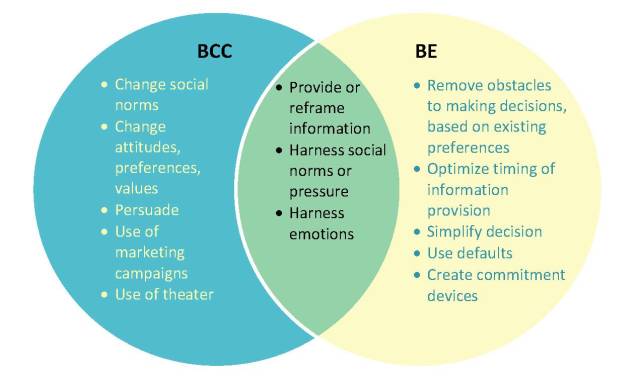Social and behavior change communication (SBCC, or BCC for short) has long been an important tool in the promotion of family planning and other public health interventions. Unsurprisingly, given its roots in marketing, BCC has adopted some of the premises of neo-classical economics—including the assumptions that humans are rational and consistent decision-makers, and that they act to maximize their own utility. BCC also draws, explicitly and implicitly, on theories and models of human behavior from social psychology and sociology. These emphasize the influence of others on an individual’s decision-making, through social learning, social proof, social identity theory, and the theory of key influencers.
Based on these principles, BCC seeks to influence and shape attitudes, behaviors, and social norms.1 Researchers point to the importance of ideational change (i.e., the change in knowledge, beliefs, and values) as a foundation for behavior change.2 Accordingly, BCC programs promote individual- and community-level change through provision of information as well as messages intended to encourage pro-social attitudes and norms. In practice, BCC often uses drama and emotion to persuade.
In contrast, the aim of behavioral economics (BE) is to help people make decisions that are in line with their existing values and desires. BE does not seek to modify core personal or cultural values, but rather uses insights from psychology to identify biases and inconsistent preferences that drive our decisions, and develop tools to overcome them. In this way, BE departs from neo-classical economics, by recognizing that people often make choices that are inconsistent with their long-term goals or desires. Principles from BE can be used to design interventions that help people remove or reduce the obstacles to better decision-making. These interventions might supply correct information, reframe existing information, streamline choices, or facilitate commitment to a decision.

Pingback: Innovation Series Webinar on Behavioral Economics - Health Communication Capacity Collaborative